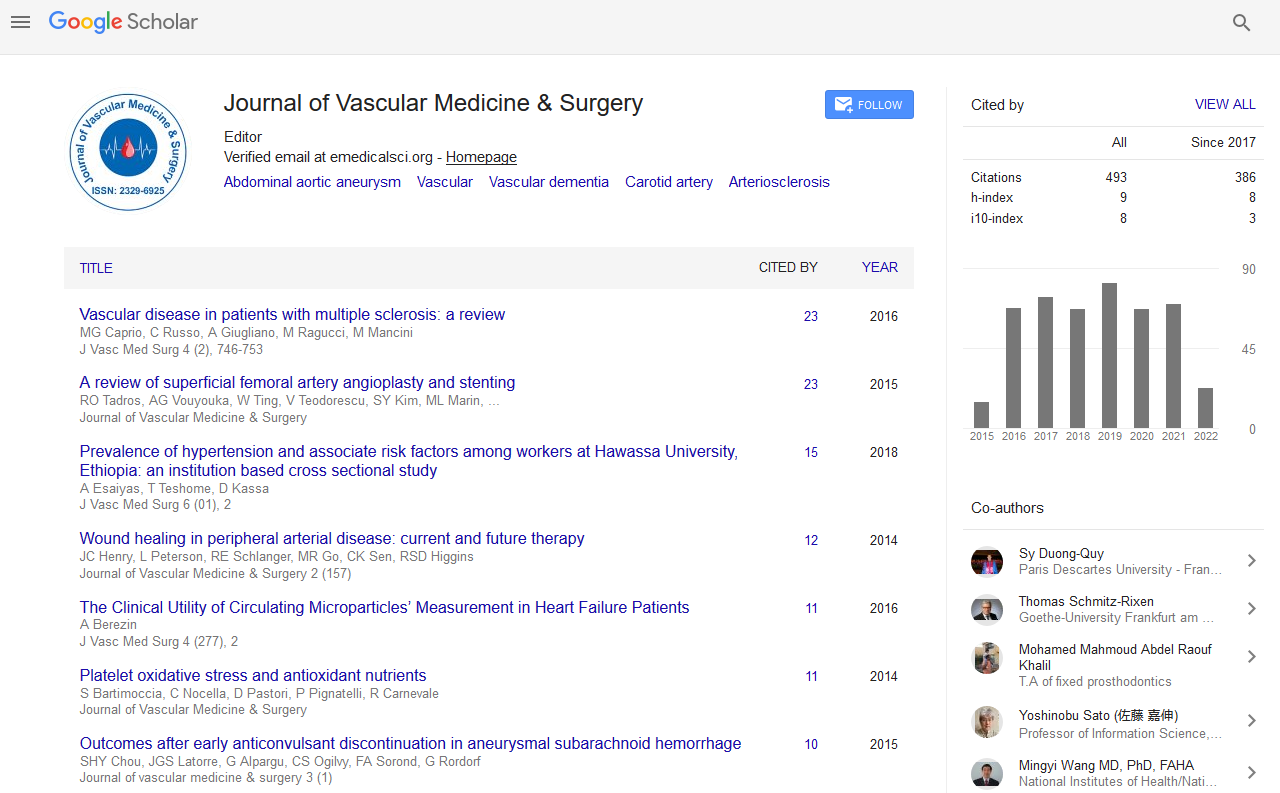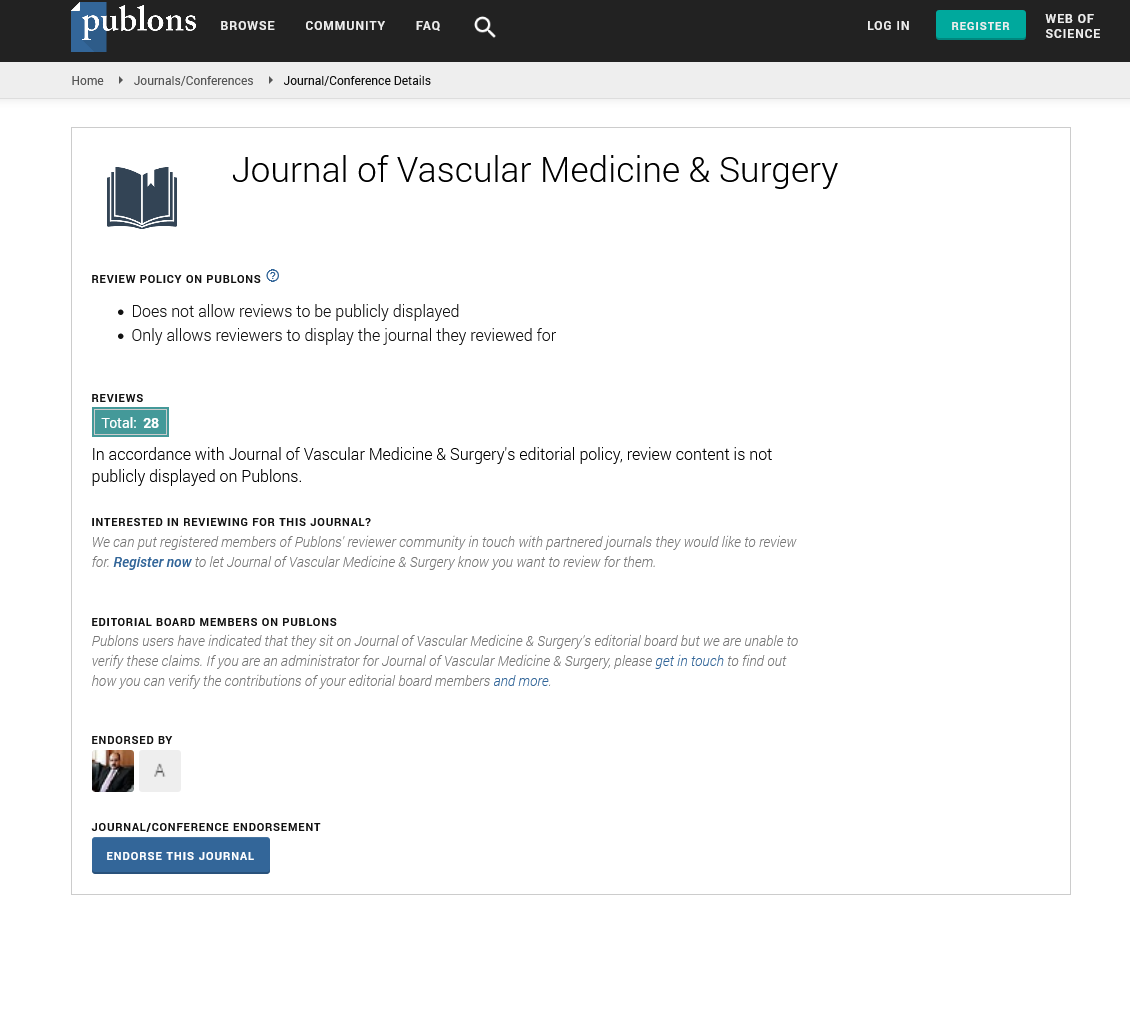Indexed In
- Open J Gate
- Academic Keys
- RefSeek
- Hamdard University
- EBSCO A-Z
- OCLC- WorldCat
- Publons
- Euro Pub
- Google Scholar
Useful Links
Share This Page
Journal Flyer

Open Access Journals
- Agri and Aquaculture
- Biochemistry
- Bioinformatics & Systems Biology
- Business & Management
- Chemistry
- Clinical Sciences
- Engineering
- Food & Nutrition
- General Science
- Genetics & Molecular Biology
- Immunology & Microbiology
- Medical Sciences
- Neuroscience & Psychology
- Nursing & Health Care
- Pharmaceutical Sciences
A2A-mediated angiogenesis in human and animal models
World Congress on Vascular Diseases, Medicine & Surgeons Summit
October 24-25, 2016 Chicago, USA
Carlos Escudero
Universidad Del Bio Bio, Chile
Posters & Accepted Abstracts: Vasc Med Surg
Abstract:
We have characterized the role of A2A receptor on angiogenesis using human and mice endothelial cells. Firstly, using pharmacological and gain-loss analysis with A2A receptors, we demonstrated that A2A receptor stimulation triggers an intracellular pathway leading to endothelial nitric oxide synthase (e-NOS) activation and nitric oxide synthesis, which in turn was associated with increase in the vascular endothelial growth factor (VEGF) expression in human umbilical vein endothelial cells (HUVEC), derived from normal pregnancies. This particular pathway is differentially impaired in preeclampsia considering gestational age of clinical diagnosis, in which reduced A2A-NO-VEGF signaling has been evidenced in early onset pre-eclampsia (<35 weeks of gestation); whereas in late onset pre-eclampsia (>35 weeks of gestation) is increased. Extending our results in A2A-mediated angiogenesis, recently we have studied wound healing in mice lacking of A2A receptors (A2AKO). Results indicate that compared to respective wild type animals, female A2AKO, but not male A2AKO, exhibited increased wound healing. This result was associated to increased dermis length and dermal capillary blood flow in female A2AKO compared to either wild type or male A2AKO. Furthermore, compared to respective wild type and using pulmonary endothelial cells we found that whereas female A2AKO expressed high levels of A2B and A3 receptors, male exhibited elevated A1 but reduced A2B, without changes in A3 mRNA levels. Functional significance of these changes showed that female A2AKO animals, but not male A2AKO, exhibited increased adenosine receptors-mediated angiogenesis capacity. Thus A2A adenosine receptor is controlling VEGF expression and angiogenesis processes in human and animal models. Alteration in these processes might be differentially present in human diseases such as pre-eclampsia or in female A2AKO animals.
Biography :
Email: cescudero@ubiobio.cl


